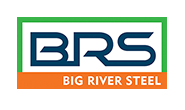Analysis

July 23, 2021
Daimler Praises BRS for 'Exceptionally Sustainable" Steel
Written by David Schollaert
Daimler AG has recognized Big River Steel (BRS) for its “exceptionally sustainable” steel. The electric arc furnace (EAF) producer, a U.S. Steel subsidiary, has helped the German automaker reduce the CO2 emissions attributed to the steel used in its Mercedes-Benz products by more than 70%.
Emission-free mobility is a corporate goal for Damiler, which thinks climate neutrality can be achieved by collaborating with suppliers and partners. That means having the right partners in steel – a core but highly energy-intensive product in vehicle construction, company executives said.
“We are well on track for executing our sustainable business strategy,” Daimler AG and Mercedes-Benz AG Chairman Ola Källenius said. “In close cooperation with our suppliers, we sharpened our focus on sustainability along the entire supply chain. Together we want to keep exceeding the expectations of our customers by taking technology, quality, and sustainability to a new level.”
BRS, the Osceola, Ark., minimill, checks all the boxes when it comes to sustainability because it melts recycled steel scrap, which is less carbon intensive than traditional integrated steelmaking, and because it uses renewable energy, Daimler AG executives said. Another factor that sets BRS apart: It has set up a closed-loop recycling system whereby the sheet-steel offcuts generated during automotive production (prime scrap) are fed back into the mill’s EAFs. BRS is in addition the first steel production facility to achieve LEED (Leadership in Energy and Environmental Design) certification.
“We are honored by this recognition from Daimler AG and the opportunity to support their outstanding efforts in sustainability,” a U.S. Steel spokesperson said.
“U.S. Steel’s commitment to sustainability, including reducing carbon intensity, has been greatly accelerated through the advanced technology, sustainable practices and dedication of our associates,” the spokesperson added. “We greatly appreciate Daimler recognizing the efforts of our BRS team.”
By David Schollaert, David@SteelMarketUpdate.com






